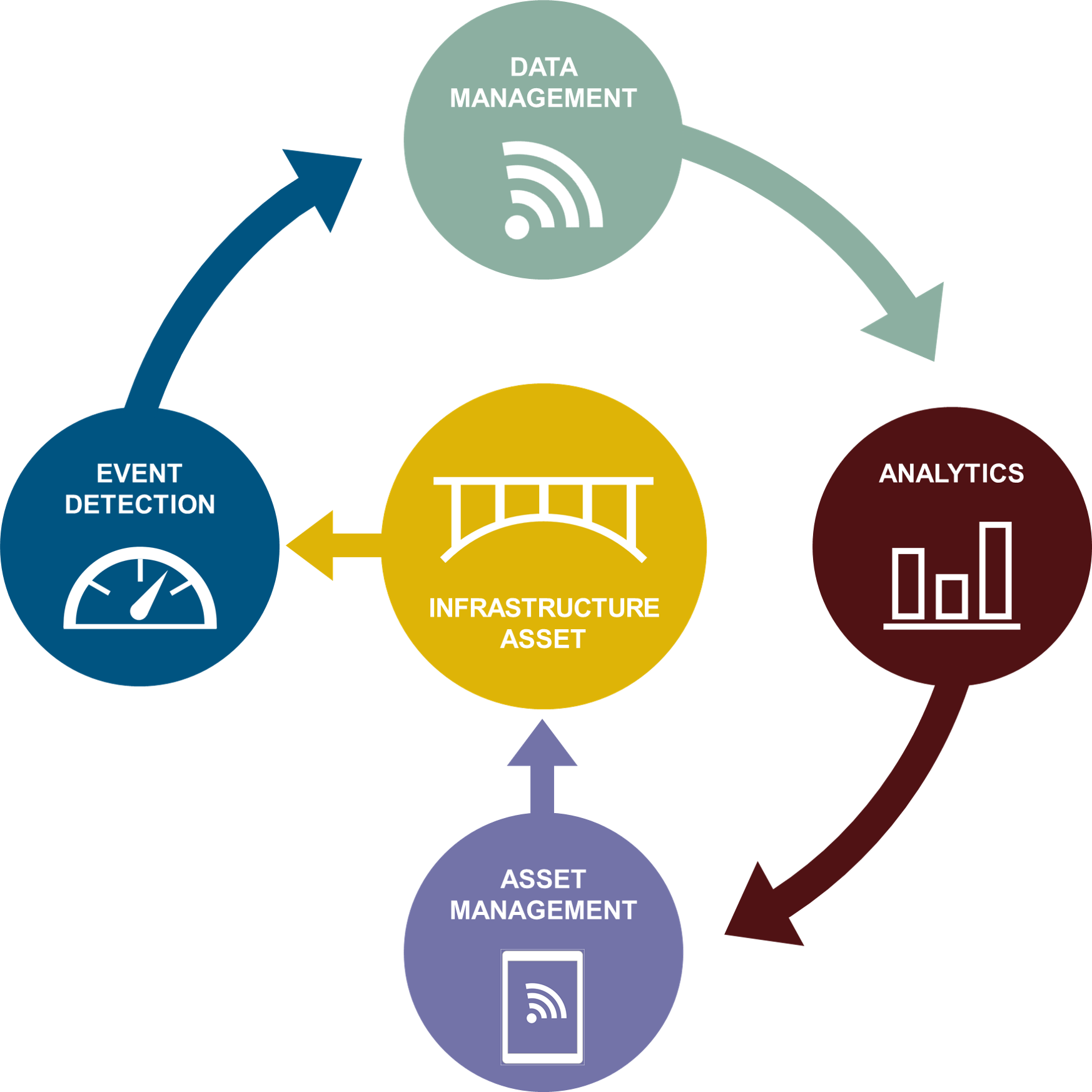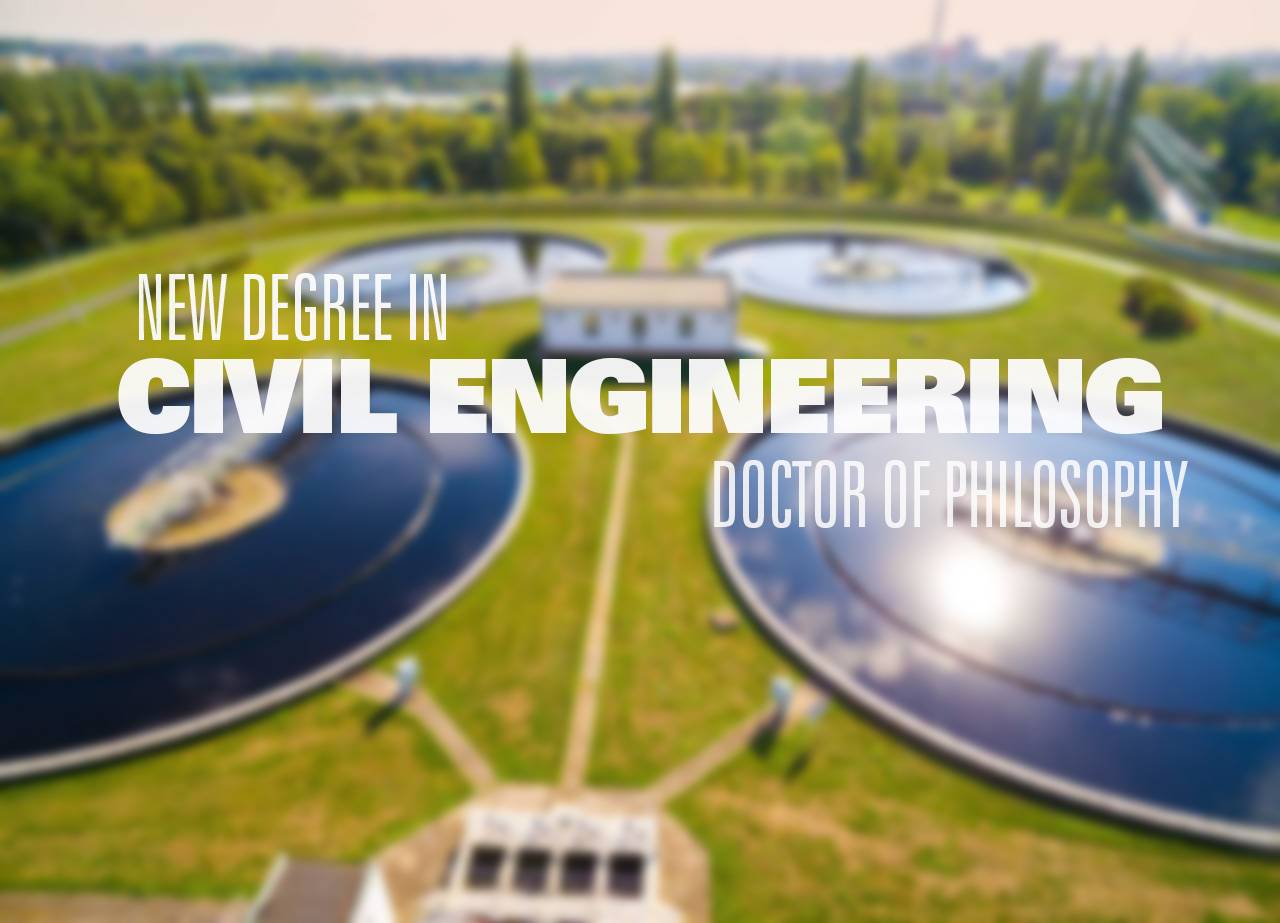Civil Engineering PH.D
The Ingram School of Engineering is now offering a new graduate program; Doctor of Philosophy in Civil Engineering. With input and support from major industries, this program is designed to allow students to develop practical applications of Civil Engineering principles with entrepreneurial acumen and expertise in technology-enhanced infrastructure.
The Ph.D. in Civil Engineering prioritizes leadership, innovation, communication, and entrepreneurship in infrastructure. The exclusive Ph.D. program aims to equip students with the skills necessary to thrive in diverse career landscapes. Notably, it will be the inaugural program in Texas to integrate the practical application of Civil Engineering principles with entrepreneurial acumen and expertise in technology-enhanced infrastructure (TEI). This forward-thinking initiative underscores the pressing need for infrastructure innovation and advances the university's commitment to fostering cutting-edge research and development in the field.
The program at Texas State aims to address the growing need for highly skilled CE professionals equipped to tackle the complex challenges of the modern world. CE plays a pivotal role in shaping the social and physical infrastructure that supports communities and drives economic development. By establishing the proposed program, Texas State seeks to position itself as a leader in advancing knowledge and innovation in technology-enhanced infrastructure (TEI) focused CE while simultaneously meeting the demands of an evolving discipline.
Technology-enhanced Infrastructure (TEI)

Our undergraduate program is one of very few in the nation with a holistic emphasis on the application of technology to the life-cycle management of infrastructure assets. We call it “Technology-enhanced Infrastructure (TEI),” because not all technology is “Smart” but technology can make infrastructure better. Industry, both within and outside of Texas, has told us that this is the direction civil engineering must take in the future.
TEI is addressed in our curriculum in two ways. First, we have a 5-course sequence, stretching from the freshmen to senior year, which addresses several basic principles of TEI. Four of these courses are new and four are interdisciplinary. In addition, every civil engineering numbered course addresses at least one aspect (sensors, data, analytics, management) of TEI.
-
The degree is comprised of four separate concentration areas:
-
Environmental & Water Resources Engineering
- Environmental engineering is about the scientific principles and engineering solutions for environmental challenges that impact the health and well-being of society and the environment. The technical skills environmental engineers learn are used to develop strategies and technologies to treat and protect the quality of air, water and earth. Environmental engineers apply their broad understanding of engineering and the sciences, such as chemistry, biology, soil science and more, to improve human and ecological health through impactful engineering applications.
- Water Resources engineering is a vast field focused on managing available water resources in terms of both water quantity and water quality to meet the water needs of human and natural environments on the local, regional, and global scales. Water resources engineers should have a fundamental knowledge of hydrological processes such as evaporation, transpiration, runoff, and infiltration which are used by nature and human society to move water globally.
-
Geotechnical Engineering
Geotechnical engineering is an area of civil engineering that focuses on the engineering behavior of earth materials. This subdiscipline is relatively young and therefore uses knowledge from other fields such as geology, hydrology, and mechanics. Geotechnical engineers use the fundamental principles of soil and rock mechanics to investigate subsurface conditions for the design of earthworks, foundations, slopes, earth retaining structures, dams, tunnels, and other structures interacting with subsoil and water.
-
Structural & Materials Engineering
- Structural engineering is a sub-discipline of civil engineering in which structural engineers are trained to analyze and design the 'bones and joints' that create the form and shape of human-made structures. It is the field of engineering particularly concerned with the analysis and design of load-bearing structures. Structural engineers need to design structures so that the structures do not collapse or behave in undesirable ways while serving their useful functions.
- Materials engineering applies materials science to engineer improved construction materials to build our infrastructure. These materials traditionally include asphalt concrete, Portland cement concrete, steel and fiber reinforced concrete, fiber reinforced polymer composites, unbound and chemically bound aggregates, and chemically treated and stabilized soils. The materials engineering in civil engineering deals with the scientific concepts and practical considerations underlying the selection, specification, and quality control of civil engineering materials.
-
Transportation Engineering
Transportation engineering primarily involves planning, design, construction, operations, and management of transportation facilities. It is the application of modern technology and scientific principles to the design, development and maintenance of transportation systems. Transportation engineers develop faster, safer and more efficient means of transportation.
-
Kickstart your career
Degree Program Paths
Entering with a Bachelor's Degree (minimum requirement of 78 hours):
- 39 hours of “Engineering Core” courses (24 required, 15 elective).
- 15 hours of “ Multidisciplinary Elective” courses, which may be substituted with engineering elective courses (6 elective).
- 24 hours of “Dissertation” courses
Entering with a Master's Degree (minimum requirement of 54 hours):
- 15 hours of “Engineering Core” courses (12 required, 3 elective).
- 15 hours of “ Multidisciplinary Elective” courses, which may be substituted with engineering elective courses (6 elective).
- 24 hours of “Dissertation” courses
Career Opportunities
Civil and environmental engineers work in a variety of career paths in both the public and private sectors, all aimed at building a safer, stronger and more sustainable world, including:
- Environmental Engineering
- Geotechnical Engineering
- Materials Engineering
- Structural Engineering
- Transportation Engineering
- Water resources Engineering
Types of funding
Ready to Apply?
Join the Ingram School of Engineering today!
Additional Information
Need more details about our graduate program?
